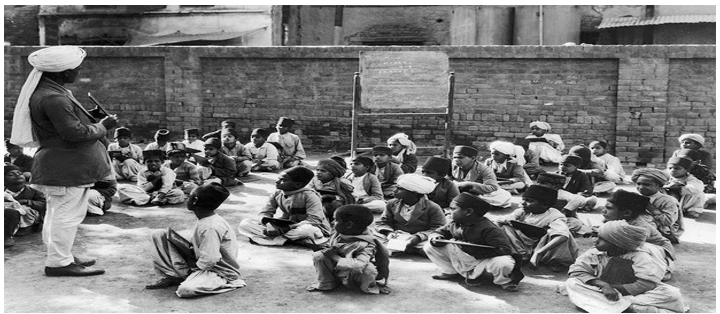How to prepare for questions related to development of education in India during British rule for both Prelims and Mains of Civil services Examination?
One of the important aspect that aspirants tend to find difficult in Civil Services preparation is the covering of History syllabus. In history, preparation for questions related to development of education in British-India is one of the core area from which UPSC is asking questions nowadays.
Since time immemorial, education is considered as powerful tool to unlock the door of freedom which can change the world. With the advent of the British, education sector find the pace of growth. For covering, Education related questions aspirants need to adopt a bit of different strategy.
Basically, agents of modern education in India can be categorised in to three categories:
- The British Government (East India Company)
- Christian missionaries
- Indian intellectuals and reformers Development of Modern education.
Interlink Topics:
- Aspirants need to interlink all topics related to education. Connecting the dots will help aspirants in understanding the entire gamut of the development of education in India. Interlinking of the topics will help aspirants in understanding the concept of introduction of education policies and what was the achievement of these policies. Try to ask yourself questions like; how policies and measures breached the legacies of traditional schools of learning and how this resulted in the need for creating a class of subordinates?
Formulate Notes:
- Aspirants need to formulate their own notes so that they can revise time and again to prepare themselves for all stages of the examination. It will be better, if aspirants formulate their notes related to one theme at one place.
|
Education Related Polices |
Features of the Polices |
|
1. Lord Macaulay’s Education Policy, 1835
|
a) Policy attempted to create that system of education which educates only upper strata of society through English. b) English become court language and Persian was abolished as court language. |
|
2. Wood’s Dispatch, 1854 |
a) This policy is also called the ‘Magna Carta of English education in India.’ b) Regularise education system from the primary to the university levels. |
|
3. Hunter Commission (1882-83) |
a) It was formed to evaluate the achievements of Wood Dispatch of 1854 under W.W Hunter in 1882. b) It underlined the state’s role in the extension and improvement of primary education and secondary education. |
Revision + Mock Tests:
- Aspirants need to practice revision and do mock test on fixed schedule as both of these components play a very important role in civil services examination. Doing both of these things will help aspirants in not only remembering the subject matter content but, it will also help aspirants in identifying their mistakes so that their mistakes can be rectified for improvement.
- IAS Aspirants are advised to revise their notes and then they should appear in the mock test so that overall coordination and coverage of entire questions related to development of education in India can be prepared for.
Approach of What, why and How:
- Aspirants should look to build up their approach of questioning related to any subject and any topic like; what, why and How. This approach will help in understanding the issue e.g. for preparation of topics like “development of education in India”, approach of aspirant should be like; why education policies were changed from time to time and what all policies were introduced and what all were the impacts of introduction of these polices of Indian society, administration, political organisation and socio-economic components. Like; Initially, British East India Company was not concerned with the development of education system in India as their prime motive was trading and profit-making. To rule in India, they planned to educate a small section of upper and middle classes to create a class “Indian in blood and colour but English in taste” who would act as interpreters between the Government and the masses. This was also called the “downward filtration theory”.
Also learn, what all policies were introduced. E.g. apart from constitution of commission for reforming of education process various institution was set up for implanting recommendations of committees like:
- Calcutta Madrasah was established by Warren Hastings in 1781 for the study of Muslim law and related subjects.
- Sanskrit College was established by Jonathan Duncan, the resident, at Benaras in 1791 for study of Hindu law and philosophy.
- Fort William College was set up by Wellesley in 1800 for training of civil servants of the Company in languages and customs of Indians.
At last, aspirants should remember that preparing for question related to history is not tough. However, aspirants need to upgrade or change their approach of reading and understanding the subject matter content related to History. Apart from this, there is also need to develop interest, because without interest aspirants will find it difficult in scoring.
|
Note: Aspirants can prepare for questions related to development of education in India during British by covering the Prelims Sampoorna Fact Files compilation of education-related policies and development of Education in India during the period of British-India. |
Related Articles





